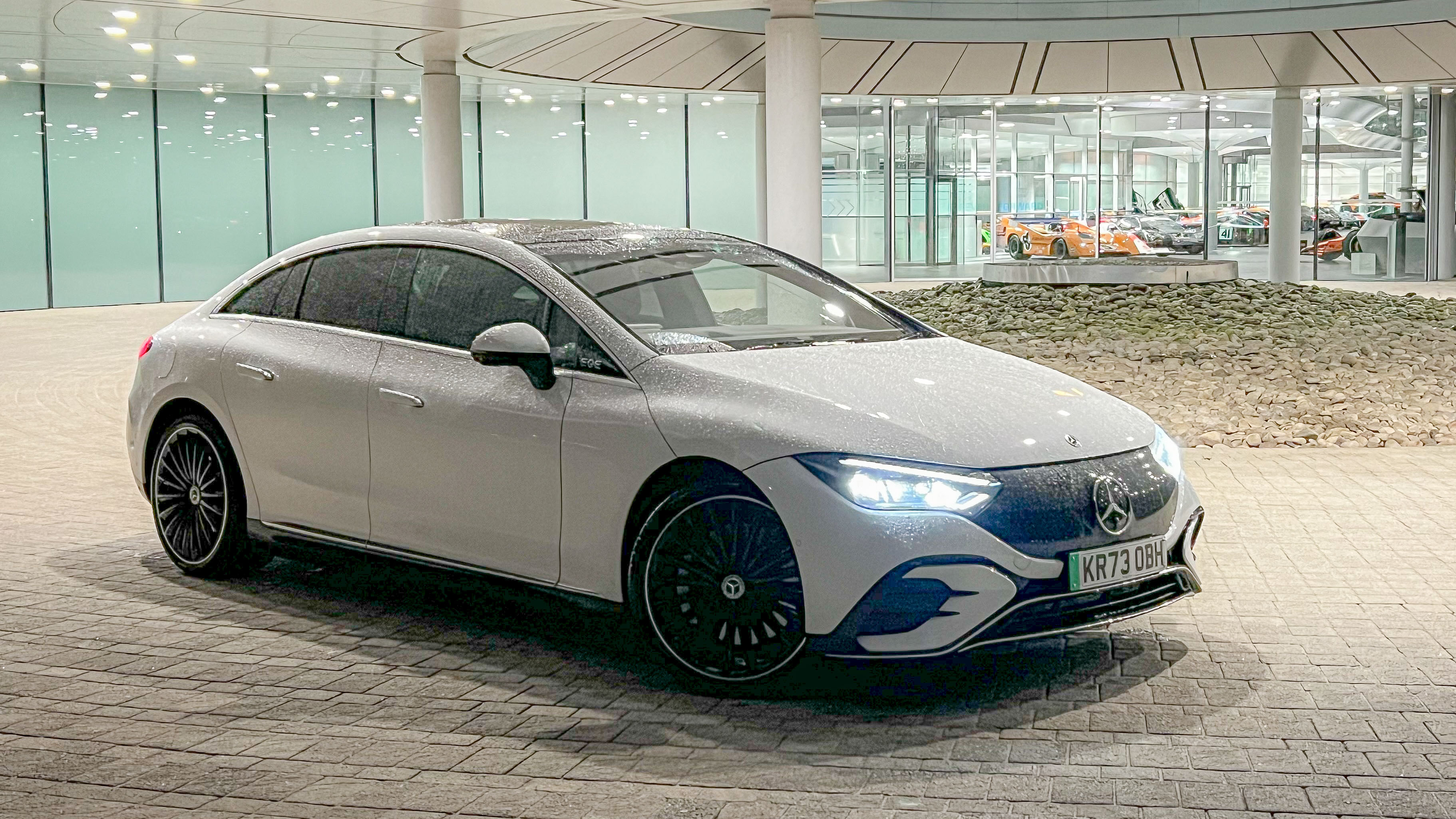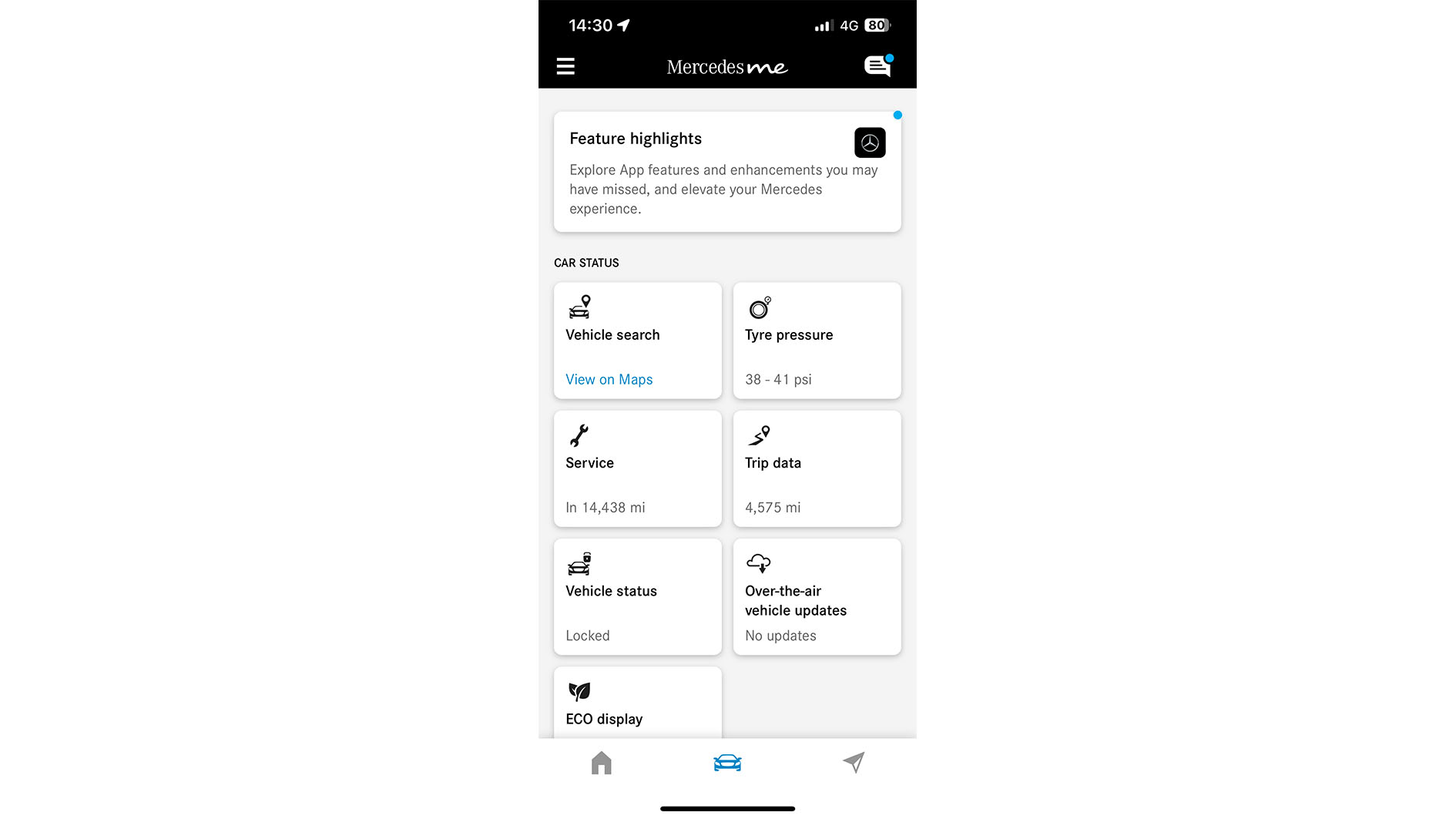
Mercedes EQE 300 - long-term review
£68,810 OTR /£87,040 as tested /£820 PCM
Do we actually want cars that are connected and know everything about us?
What does your car know about you? What data is it transmitting back to the factory? Are transcripts of my in-car chat being sent to a giant server? Is AI learning my routes, my driving style, noting my speeds?
This has been concerning me lately, because the Merc EQE is the most integrated car I’ve ever driven. ‘Hey Mercedes’ wants to help out. There’s a news feed, traffic updates, information constantly coming in from outside. There’s a very comprehensive phone app. If I want, I can not only flash the lights remotely, I can change the ambient cabin lighting, check the tyre pressures, open the windows. I suppose there are occasions when some of this might be useful, but mainly it’s a gimmick. The technology can do it, so Merc has indulged it.
And if the technology can ‘help’ me, it can just as easily help Mercedes understand me: ‘oh, the throttle is flat on the floor and in-car recordings reveal he’s cursing his EQE 300 for being slow, maybe we should feed him some ads for the AMG 53?’ Well, it is slow, but my car, my business.
Happily, though, there’s much legislation that prevents Mercedes – or any other firm for that matter – from knowing you. The UK may not be under EU GDPR data privacy and protection regulations anymore, but those were incorporated into our own Data Protection Act in 2018. They allow us to access information that firms hold on us and limit what those firms can do with that data. They’re some of the toughest in the world. Since my car has yet to offer me an AMG 53, yet my social feeds are somehow full of kitchen work surface suggestions following a chat with my wife last night, I’m inclined to believe Merc’s benign tendencies in this.
However, by signing up to Mercedes Me and activating the app (which you don’t have to do), some data transfer is necessary. It’s explained in the small print. Nope, didn’t read it. It was in the app, but I was too busy mucking around with the ambient lighting. But I did get in touch with Mercedes and the gist of it is this: “communication between the vehicle and the outside world takes place via a protected server, the Mercedes Intelligent Cloud. This ensures that there is no direct access to the vehicle by third parties”.
I’ve got a one-word reply to that: hacking. If car firms were found to be misusing your data, it would be a scandal to dwarf Dieselgate. They’d be fined billions, trust would go out the window, they’d never risk it. However, that data is valuable, so how secure is the Mercedes Intelligent Cloud? That’s got to be a target surely.
And it’s not just your data that’s potentially vulnerable if firms don’t get their security right. Remember the case nine years ago where hackers proved they could infiltrate a Jeep on a US highway and bring it to a halt? We’ve got to assume that was the wakeup call the whole industry needed.
Do we actually want these connected cars? About all I use the Merc’s app for is sending it destinations, making sure it’s warm on a chill morning, checking on charging and irritating my wife by changing the ambient lighting when she’s taken it for the day. I don’t need any of this. I wouldn’t miss it if I didn’t have it. It doesn’t fundamentally improve my experience of the car. But firms seem to have decided that this is now the key battleground, that what matters is connectivity, not driver engagement, luxury materials or design. It’s like they look at what people say and show on social media and decide that’s what matters most. It isn’t. Why not speak to the people who buy the cars? Because I’d just tell them they could sort the EQE by fitting better seats.
Featured

Trending this week
- Car Review
BMW 1 Series
- Top Gear's Top 9
Nine dreadful bits of 'homeware' made by carmakers






